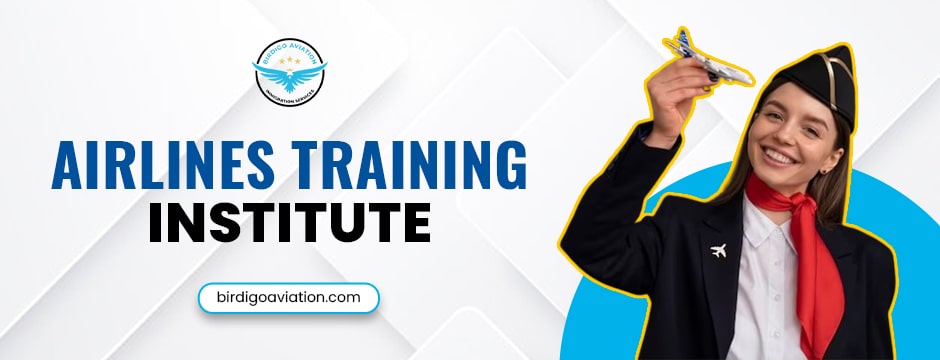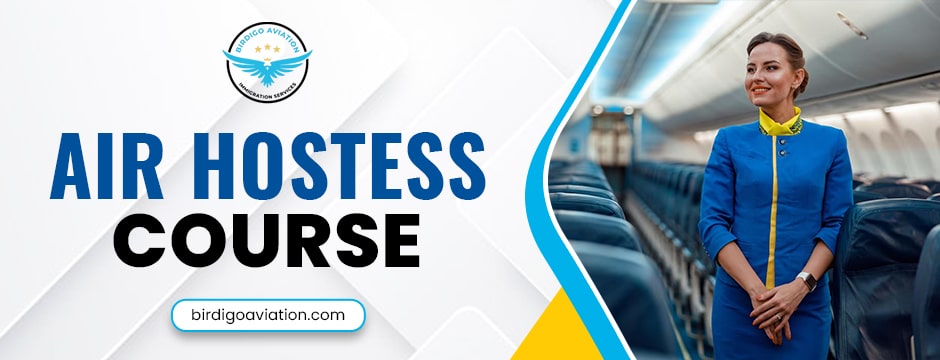In the aviation industry, first impressions are everything. Air hostesses and cabin crew members are often the first point of contact between an airline and its passengers. Their appearance, demeanour, and professionalism set the tone for the entire flying experience. While technical skills and safety procedures are crucial, grooming and etiquette are just as vital in building a successful career in this competitive field.
An Air Hostess Academy understand this importance and dedicates a significant portion of its training to polishing the students’ personal presentation and social conduct. From proper makeup application and dress codes to communication techniques and cultural sensitivity, these elements help future flight attendants embody the grace and confidence needed to represent their airline brand. In this blog, we’ll dive deep into how grooming and etiquette training shape the careers of aspiring air hostesses, why it’s considered essential in aviation, and how academies prepare candidates to stand out in international aviation environments.
Grooming: The Foundation of a Professional Appearance
Airlines follow strict grooming standards because cabin crew represent their brand image. A polished look conveys reliability, professionalism, and trustworthiness — traits passengers expect during their travel. Key components of grooming taught in academies include:
- Uniform Maintenance: Students learn the importance of keeping uniforms crisp, clean, and properly fitted. They are trained to present themselves in line with airline guidelines.
- Personal Hygiene: Proper skincare, oral hygiene, and hair grooming are part of the daily routine expected of any flight attendant.
- Makeup & Hairstyling: Makeup is not about beauty alone — it’s about uniformity, consistency, and the ability to maintain a fresh look during long flights. Hair is expected to be neatly tied back in approved styles.
- Posture & Body Language: Standing tall, walking gracefully, and maintaining open, respectful body language are essential for building a positive passenger experience.
Airlines training institute uses real-life simulations and practice sessions to instil these habits until they become second nature. The goal is to ensure that students are not just looking good, but are presenting themselves as approachable and competent professionals.

Etiquette: The Art of Polished Interactions
In a multicultural and service-oriented industry like aviation, etiquette plays a central role. Air hostesses must be able to handle a wide variety of social interactions, many of which are delicate or high-pressure. Areas of etiquette emphasised in training include:
- Verbal Communication: Speaking, using polite language, and maintaining a pleasant tone — even under stress — are skills developed through rigorous training.
- Non-verbal Communication: Smiles, eye contact, gestures, and other cues are essential to convey warmth and hospitality.
- Passenger Handling: Handling difficult passengers, resolving conflicts calmly, and managing sensitive issues (like medical needs or special requests) are part of daily duties.
- Cross-cultural Sensitivity: Air hostesses often work with passengers from around the world. Training includes understanding cultural norms, body language variations, and taboos to avoid offence.
With the right etiquette training, flight attendants are not just providing service — they are creating a comfortable and respectful environment for passengers from all walks of life.
Professionalism Beyond the Cabin
A well-groomed appearance and good manners don’t just serve passengers; they impact how air hostesses interact with their colleagues, supervisors, and even airport security and ground staff. Professional behaviour includes:
- Punctuality and Discipline: Always showing up on time and being ready for duty is non-negotiable in aviation.
- Team Coordination: Air hostesses must work seamlessly with co-crew members, respecting authority and supporting one another.
- Emotional Intelligence: Managing one’s emotions, showing empathy, and being resilient in high-pressure situations are part of everyday operations.
An Air Hostess Academy integrate these soft skills into its curriculum through group activities, role-playing exercises, and continuous performance assessments.
Confidence Building Through Personal Development
Grooming and etiquette are deeply tied to self-confidence. When aspiring cabin crew members look polished and speak with courtesy, they feel more empowered to take on responsibilities and engage with others. Many academies focus on:
- Public Speaking: Building communication confidence through speech drills and announcements.
- Interview Preparation: Teaching students how to present themselves with poise during airline interviews.
- Self-awareness & Feedback: Students are coached to accept feedback gracefully and to constantly refine their appearance and behaviour.
This overall transformation prepares students not only for the job but for lifelong personal growth and career advancement.
Real-World Simulations & Grooming Assessments
The top air hostess course uses mock scenarios and flight simulations to evaluate how students carry themselves in real-time. This includes:

- Mock Cabin Service Routines
- Emergency Handling Drills with Customer Interactions
- Live Grooming Inspections
These practical sessions allow trainers to provide constructive feedback, correct habits, and sharpen the students’ etiquette in authentic aviation contexts.
The Competitive Advantage in Airline Recruitment
Airline recruiters look for candidates who are more than just technically trained — they want individuals who can represent their brand with charm, grace, and professionalism. A candidate who is impeccably groomed and courteous during the interview already sets themselves apart.
By investing in strong grooming and etiquette training, air hostess academies give their students a solid competitive edge. This foundation not only helps them get hired but also positions them for long-term success and promotions within the airline industry.
Final Words
Mastering grooming and etiquette is not about vanity — it’s about professionalism, respect, and confidence. These soft skills play a defining role in how air hostesses perform, how they are perceived, and how far they go in their careers.If you’re looking to embark on a rewarding journey in aviation, choose an academy that focuses on all aspects of cabin crew development — not just theory, but personality and presence too. Birdigo Aviation is a premier Air Hostess Academy that offers industry-aligned grooming, etiquette, and professional training modules to help you succeed in today’s competitive airline recruitment landscape. With a track record of excellence and personalised mentorship, we prepare you to take off with confidence, elegance, and skill.

